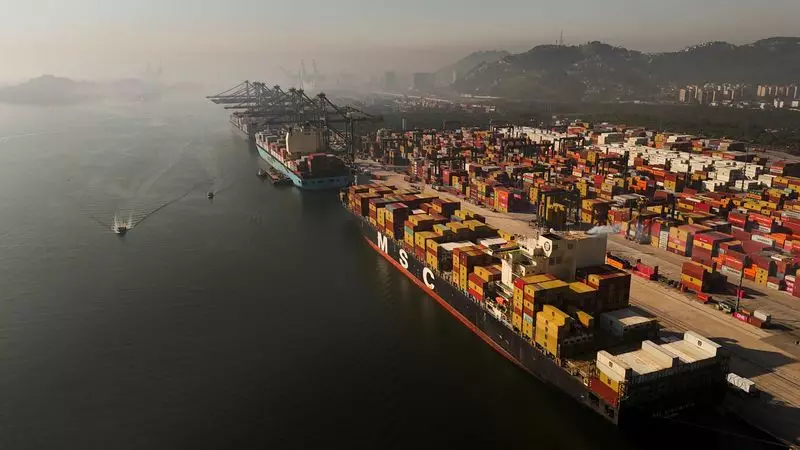Recent analyses by UBS highlight an emerging potential for a new trade conflict that could unfold in distinct phases throughout 2025. This evolving scenario captures the intricate interplay between political dynamics and economic realities. Analysts categorize this anticipated confrontation into three primary phases: the “tweet phase,” the “imposition phase,” and the “impact phase.” Each of these stages carries implications that could reverberate through global markets and reshape trade relationships.
The first stage, dubbed the “tweet phase,” is already visible today, characterized by an increase in social media activity surrounding trade negotiations. Leaders and officials from various countries are utilizing platforms like Twitter to communicate their stances, make demands, and outline grievances. This preliminary stage is more than mere posturing; it sets the stage for negotiations and establishes the groundwork for future actions. The public declarations made during this phase often aim to signal resolve and shape public opinion while attempting to exert pressure on trade partners. Analyzing this trend, it becomes clear that social media has become a vital tool in modern diplomacy, amplifying messages and opinions swiftly and broadly to engage stakeholders.
Looking ahead, UBS predicts that the “imposition phase” will commence in early 2025, transitioning from rhetoric to more concrete actions. This phase will encompass the legal groundwork necessary to impose tariffs, which includes extensive procedural steps, public comments, and drafting measures that can withstand potential legal challenges. This meticulous approach emphasizes the importance of protocol and preparation, reflecting the governments’ awareness of the economic and political stakes involved. Analysts note that while some preparatory actions may already be in motion, the final timeline will depend heavily on the administration’s priorities and how well they manage the complexities of the regulatory environment.
Following the imposition of tariffs, the “impact phase” is expected to unfold from the second quarter of 2025 onwards. During this critical period, businesses may proactively stockpile inventory to cushion against anticipated disruptions, demonstrating a strategic approach to mitigating risks. However, UBS warns that the broader economic ramifications could manifest quickly, potentially resulting in reduced trade volumes and decelerated economic growth even before quarterly earnings reports reflect the steep costs associated with newly implemented tariffs. The expectation for an immediate impact on trade dynamics raises questions about the sustainability of certain industries and highlights the interconnectedness of global markets.
UBS underscores that a continuous “negotiation phase” will play out alongside the aforementioned stages throughout the year. Trade partners are likely to remain engaged in ongoing dialogues aimed at either alleviating tensions or responding with retaliatory measures as necessary. This persistent negotiation indicates a dynamic landscape where trade policies can drastically shift in response to unfolding events. The recent Chinese decision to restrict exports of critical metals underscores this transactional nature of current trade policy, suggesting that tactics may quickly pivot to match the strategic objectives of each participating nation.
As discussions of tariffs loom, the potential repercussions extend beyond immediate trade impacts. UBS warns that emerging market currencies, particularly the Chinese yuan, may experience heightened volatility and downward pressure as reduced trade volumes and heightened investor concerns take hold. Past trade tensions have demonstrated a pattern of instability for the yuan, although it is anticipated that interventions from China’s central bank could provide a semblance of stabilization. Additionally, the anticipated tariffs could pose significant challenges to broader economic policies, particularly as the Federal Reserve navigates interest rate adjustments amid new inflationary pressures.
The impending stages of this anticipated trade war, as analyzed by UBS, reveal a complex web of political maneuvering and economic impact that businesses and policymakers must navigate. The progression from the “tweet phase” to the eventual “impact phase” showcases the intricate balance of rhetoric, legal preparedness, and economic strategy critical to managing global trade dynamics. As stakeholders closely monitor these developments, the uncertainty surrounding future actions can deeply influence market responses and economic stability. While the forecast suggests a moderate pace of inflation, the risks associated with an escalation in tariffs remain a cautionary consideration for global economies.

